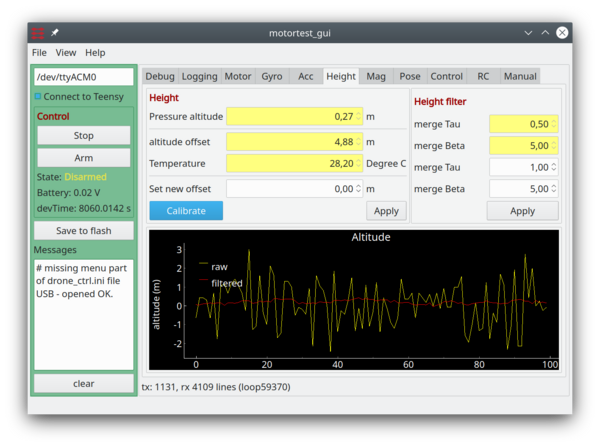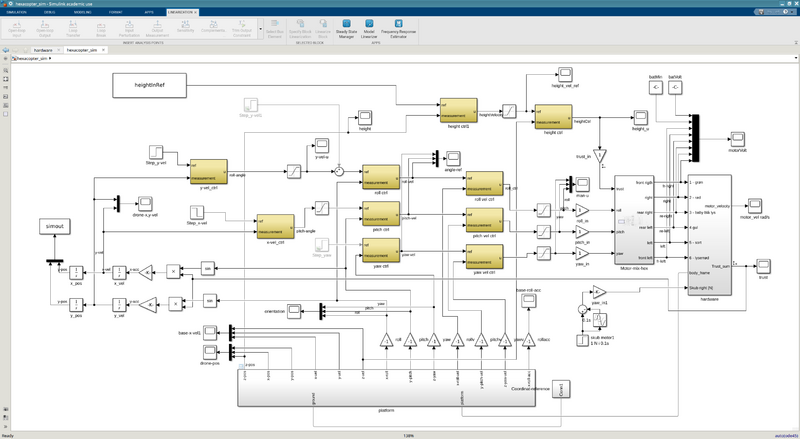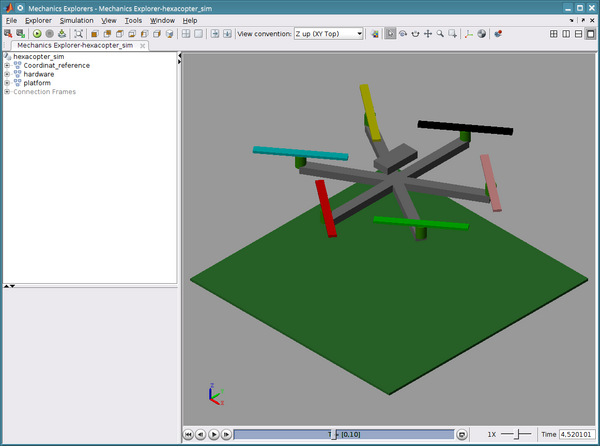Drone control: Difference between revisions
From Rsewiki
No edit summary |
|||
| Line 16: | Line 16: | ||
=== Time responce === | === Time responce === | ||
[[File:3508-700-14x5.5-11v.png]] | [[File:3508-700-14x5.5-11v.png | 600px]] | ||
With 11 V supply (3 lipo cells). From 1.1ms to the ESC (idle) to 1.9ms almost full throttle. The ESC update frequency is 400 Hz. | With 11 V supply (3 lipo cells). From 1.1ms to the ESC (idle) to 1.9ms almost full throttle. The ESC update frequency is 400 Hz. | ||
[[File:3508-700-14x5.5-15v.png]] | [[File:3508-700-14x5.5-15v.png | 600px]] | ||
With 11 V supply (4 lipo cells). note that 30 amps is not sustainable, the motor gets hot fast. | With 11 V supply (4 lipo cells). note that 30 amps is not sustainable, the motor gets hot fast. | ||
== Motor test app == | == Motor test app == | ||
Revision as of 09:31, 5 October 2020
Drone project
This project is intended to be a rather simple core drone stabilizer application based on Teensy and the prop shield.
Intended to be expanded with an outer control loop with a non-realtime sensor, e.g. GNSS, camera or laser scanner.
Hardware
Drone software
Propeller - motor performance
Measured with the app below, using the motor 3508-700KV Turnigy Multistar 14 Pole Brushless and a 14x5.5 carbon propeller. The ESC is a Hobby-wing x-rotor 40A controller.
Time responce
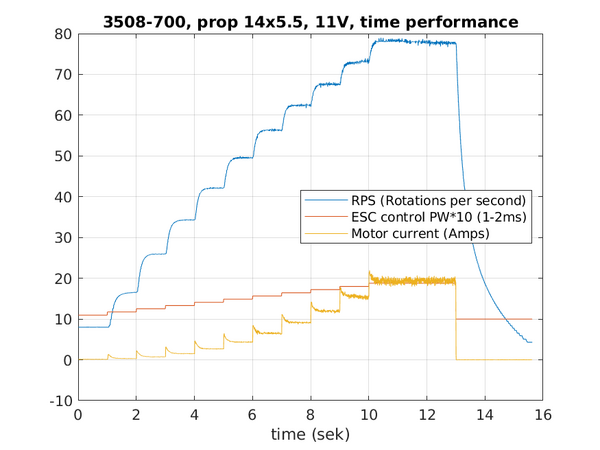 With 11 V supply (3 lipo cells). From 1.1ms to the ESC (idle) to 1.9ms almost full throttle. The ESC update frequency is 400 Hz.
With 11 V supply (3 lipo cells). From 1.1ms to the ESC (idle) to 1.9ms almost full throttle. The ESC update frequency is 400 Hz.
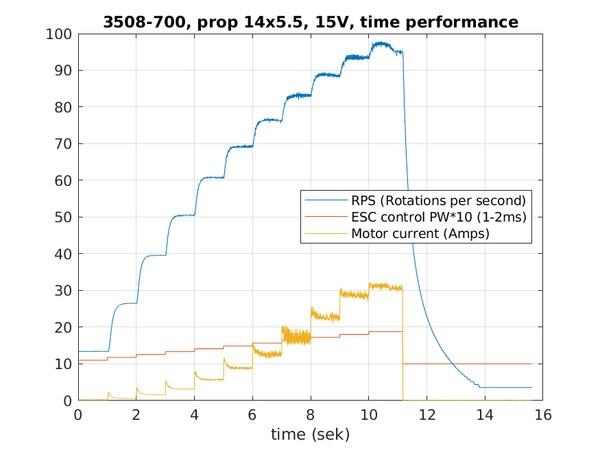 With 11 V supply (4 lipo cells). note that 30 amps is not sustainable, the motor gets hot fast.
With 11 V supply (4 lipo cells). note that 30 amps is not sustainable, the motor gets hot fast.
Motor test app
MATLAB simulation
Simulink model of hexacopter.
Sim mechanics simulated hex-drone hoovering.
